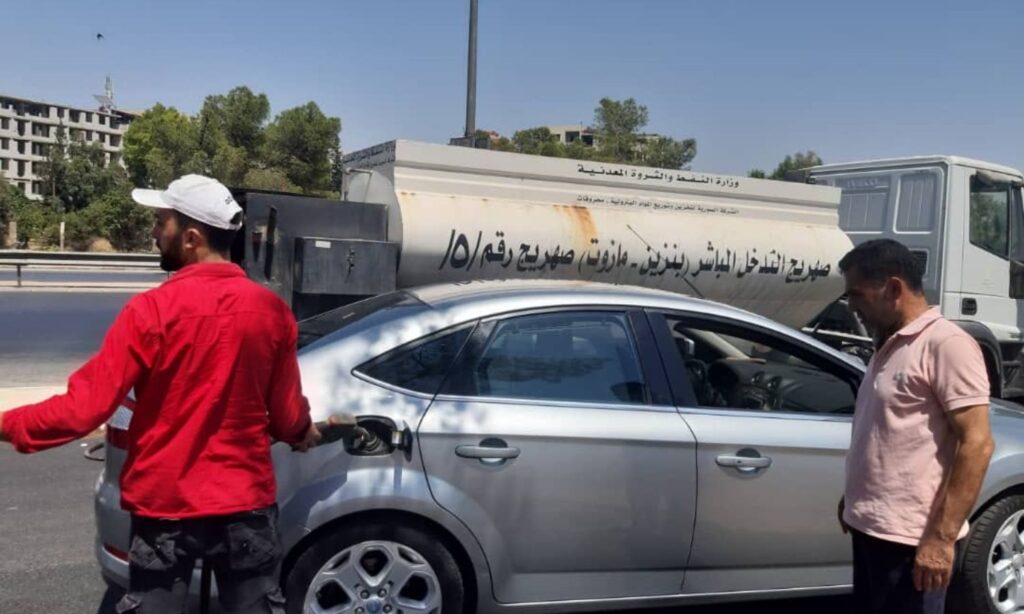The Ministry of Oil in the Syrian regime’s government announced the adoption of messages (SMS) for selling Octane 95 gasoline.
The ministry justified this step on Thursday, August 8, with the aim of reducing crowds at stations, preventing trading operations, and ensuring the material reaches those who are entitled to it.
The mechanism for obtaining gasoline will be through the station via the Way-in application or the project’s Telegram channel. The material will then be booked based on the citizen’s preference. A slot will be reserved at the station level, and a message will be sent to collect the material within 24 hours after receiving the message.
If the cardholder delays collecting the material and re-requests it, a new slot will be reserved without considering the first request, allowing the station to be changed without any restriction, and retaining the slot preference for booking at the station level.
The quantity of gasoline when ordered for a private car via the message was set at 30 liters every eight days, and for public cars, it was set at 25 liters every month.
Last Sunday, the Ministry of Internal Trade made a slight adjustment to the prices of some types of fuel, following a previous adjustment on May 13.
The regime’s government distributes fuel allocations to residents in its controlled areas in a rationed manner, forcing them to resort to the black market to cover their needs. Prices vary according to demand and the availability of subsidized materials. Prices double during recurrent fuel crises and decrease when materials are available in a systematic manner.
The prices of most consumer goods are affected by the increase in fuel prices, amid the low purchasing power of the population and the deteriorating economic situation, with many families relying on remittances from Syrians residing outside Syria to secure a minimum standard of living.
The local al-Watan newspaper reported on May 11 from a source in the Ministry of Oil that the company “Mahrukat” would start distributing additional quantities of gasoline and diesel, which would reduce the time it takes to receive gasoline messages and improve the supply of diesel to public transportation. However, this has not happened to date.

